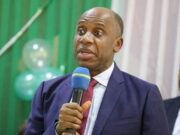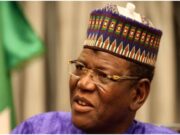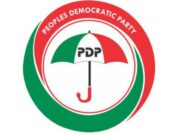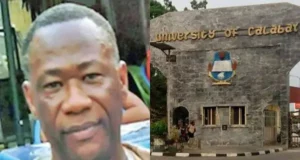At least 51 tertiary institutions in Nigeria have come under scrutiny for alleged illegal deductions and mismanagement of funds from the Nigerian Education Loan Fund (NELFUND), in what has become a growing controversy surrounding the implementation of the student loan scheme.
According to investigations by The Guardian, these institutions reportedly deducted amounts ranging from N3,500 to N30,000 from each student’s loan disbursement.
This practice, described as exploitative, has triggered widespread outrage among students and civil society advocates.
While NELFUND and the National Orientation Agency (NOA) jointly condemned the deductions, they also criticized the affected schools for lacking transparency—particularly their failure to notify students of disbursed loans or provide clear breakdowns of institutional fees.
Named among the institutions involved are Modibbo Adama University (MAU), Yola; Yaba College of Technology (YABATECH); Lagos State University of Education (LASUED); Ladoke Akintola University of Technology (LAUTECH); University of Nigeria, Nsukka (UNN); Ahmadu Bello University (ABU), Zaria; University of Port Harcourt; Obafemi Awolowo University (OAU), Ile-Ife; and Bayero University, Kano (BUK), among others.
Students shared personal accounts of being charged above the approved fees.
At the University of Jos (UNIJOS), for instance, the approved institutional fee was N130,000, but students received disbursements ranging from N145,000 to N150,000, leaving discrepancies of N10,000 to N20,000. At the Federal University of Lafia, the discrepancy amounted to N28,500 per student.
Similar cases were reported at other institutions.
“UNN has still not refunded the school fees from last session. Many students applied for the loan but ended up paying school fees independently. UNN received the money from NELFUND and kept silent,” said Malvin Okeke, a student.
Other students echoed similar frustrations.
Baruwa Razak of Olabisi Onabanjo University (OOU) questioned why already-paid tuition was withheld, while Joshua Ali from UNIJOS claimed that refund requests submitted since January had gone unanswered.
At Taraba State University, student Davo alleged that out of the N120,000 loan disbursed, only N57,000 was refunded, with no explanation for the remaining N63,000.
In Calabar, students reportedly had to pay N12,000 to obtain a ‘fees payment invoice’ before qualifying for refunds.
Parents have also expressed dismay.
“Before the payment of my son’s NELFUND-approved loan at the start of the ongoing semester, FUTA mandated the students to pay at least 40 per cent of their school fees to be able to access the portal for registration. Three months after NELFUND payments, FUTA has yet to refund us,” lamented Sunday Adedeji.
Modibbo Adama University confirmed it received double payments affecting about 300 students.
Spokesperson Muhammad Nur noted that this was a nationwide issue and stated, “Physical verification was required to ensure accuracy and avoid inconsistencies.”
Similarly, FUTA admitted the double payments, explaining that disbursement was split between two accounts, one of which had yet to be linked to the school’s Remita platform.
“Another reason for the slight delay in disbursement is that the fund was released in two tranches… The newly created account is yet to be linked to our payment platforms on Remita,” said Adegbenro Adebanjo, Director of Corporate Communications.
YABATECH, on the other hand, dismissed the allegations, asserting that the amount received is still under verification by the Central Bank of Nigeria.
“We urge students to be patient. Payment will be made in due course,” said spokesperson Adams Adekunle.
The broader issue, however, may be systemic.
NELFUND Managing Director Akintunde Sawyer warned that the current practices, if unaddressed, could erode the integrity of President Bola Tinubu’s student loan vision.
He stated, “Withholding critical financial information from students is unethical and a direct violation of the principles upon which NELFUND was established.”
He further emphasized that failure to hold institutions accountable would sabotage efforts to promote equitable and inclusive access to higher education.
NOA added that it had uncovered unethical practices through reports from its state directorates.
“The NOA feedback showed how specific institutions have deliberately delayed payments to successful applicants for personal financial benefit, in connivance with some banks,” the agency stated.
Critics have since called for reform. Omole Ibukun of the Creative Change Centre described the situation as a betrayal of trust: “This is a betrayal of the principles of accountability and transparency that should be taught by example at our ivory towers… The concealment of this financial information will lead to many students dropping out.”
Ibukun proposed the formation of student oversight committees and urged legal action against guilty institutions.
“All the institutions guilty of this crime must refund the double payments,” he insisted.
The National Association of Nigerian Students (NANS), through its President Olushola Oladoja, announced an ongoing investigation.
“We are engaging with NELFUND and relevant stakeholders to get to the root of the matter,” he confirmed.
With over N50 billion disbursed to 300 public tertiary institutions, stakeholders are calling for a shift in the disbursement model—proposing that funds be paid directly to students to eliminate institutional interference and ensure accountability.
















